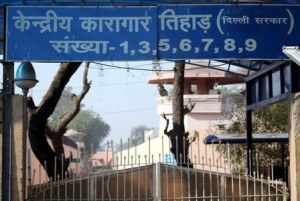 By Prachi Salve (IANS): For the 13 years, the Salman Khan hit-and-run case was in trial, it was one of 18.5 million criminal cases pending in India’s district and lower courts – and the 50-year-old Bollywood star was one of 22.2 million people under trial.
By Prachi Salve (IANS): For the 13 years, the Salman Khan hit-and-run case was in trial, it was one of 18.5 million criminal cases pending in India’s district and lower courts – and the 50-year-old Bollywood star was one of 22.2 million people under trial.
Driven by a shortage of prosecutors, judges and courts and — among other reasons — slow procedures, there are more people under trial in India than there are people in the Netherlands or Kazakhstan.
In 2013, the cases of as many as 85 percent of people put on trial were pending, according to National Crime Records Bureau (NCRB) data. Let us look at the rates of pending cases in a variety of courts across India. Criminal cases form 19 percent of the Supreme Court’s pending cases and 25 percent of the settled cases.
In the high courts, 23 percent of pending cases (a million of them) are criminal cases, while 6.9 percent of those settled are criminal cases. In district and subordinate courts, 67 percent of pending cases are criminal.
New cases flood in, and together with the backlog, they outnumber settled cases and increase the caseload. For instance, in the first quarter of 2014, the Supreme Court had 5,466 new criminal cases and 12,211 cases carried over from the previous year, but only 5,267 of those were settled.
What India needs: Judges, and more judges
India has 15 judges for every million people, one of the world’s lowest ratios.
Lower-court vacancies are a leading cause of pending trials, as IndiaSpend previously reported.
The lower courts were 22 percent (or 4,288) short of judges as of April 2014, the high courts 29 percent (256) and the Supreme court 19 percent (six).
Delays tend to be higher in lower courts and correspond with the number of judicial vacancies. High courts with the most pending cases are also those with the most vacancies, the data shows.
(In arrangement with Indiaspend.org, a data-driven, non-profit, public-interest journalism platform, with which Prachi Salve is a Policy Analyst. Additional research by Aadya Sharma and Pratiksha Wadekar)
